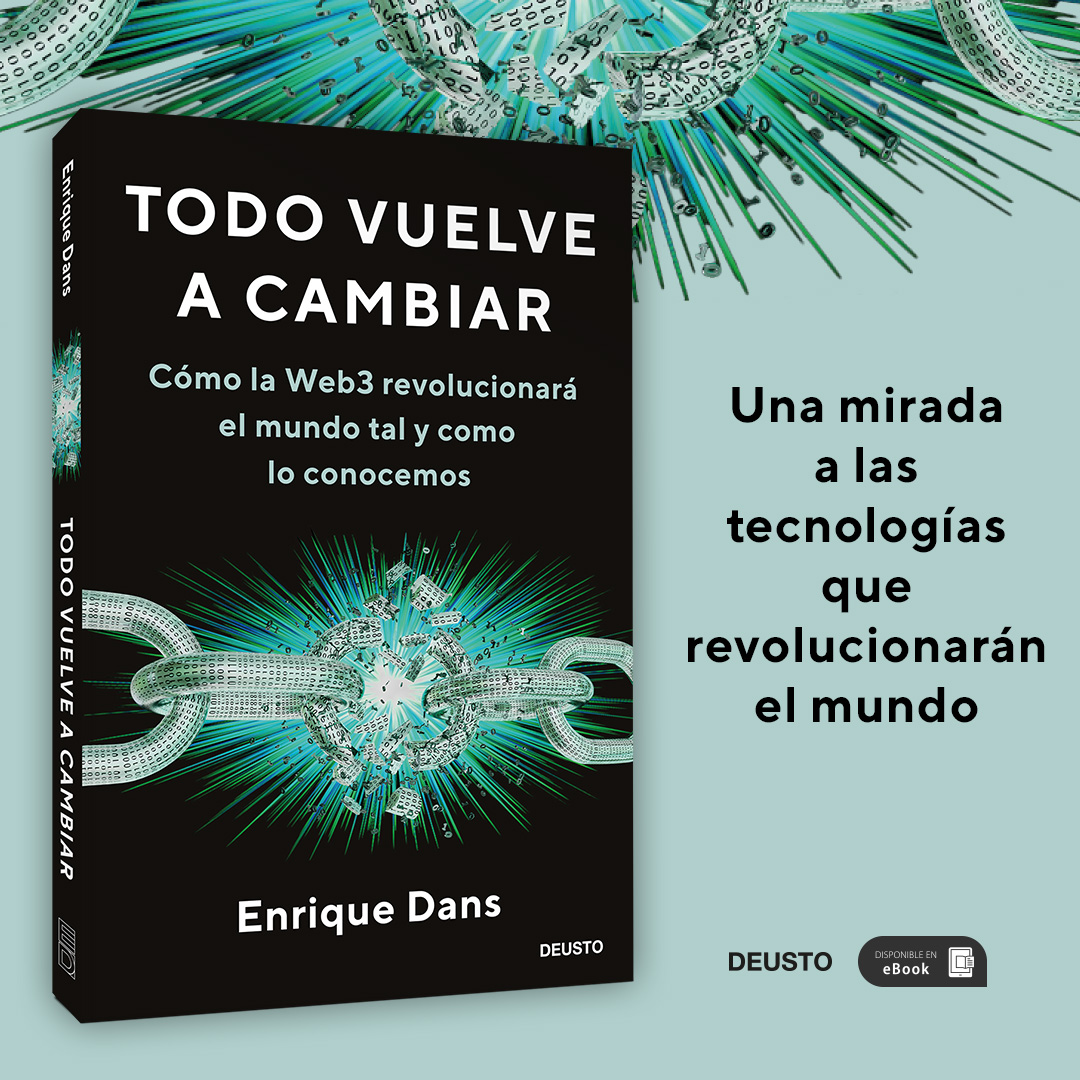Mi columna de Libertad Digital de esta semana se titula «Persiguiendo las descargas«, me la sugirió Gonzalo Martín, y pretende reencuadrar la actual corriente europea de intento de persecución de las descargas – fundamentalmente la ofensiva de Sarkozy y la discusión surgida en Suecia – con las experiencias que ya han demostrado que dichos intentos no sólo no sirven de nada, sino que además viola derechos fundamentales de los ciudadanos y arroga un papel de sancionador y de vigilancia a los ISP que no les corresponde en ningún caso. Al final, lo de siempre: leyes que no pueden ser cumplidas, criminalización de cosas que no deberían ser un crimen, y beneficios para quienes no quieren evolucionar con los tiempos.


Algún día la política se iluminará, tengo la esperanza.
Pues yo vivo en el campo y todo esta vallado y lleno de puertas…poco campo para pasear queda.
La solución pasa por que se iluminen las empresas que empujan a la política.
Bueno, puedes añadir un nuevo uso de twitter: envíenme sugerencias para artículos: la línea editorial colaborativa :-)
Eres un egoncéntrico crónico. Dejarás de hablar algún día de tus publicaciones, fantasmón!
Ignoro si ya lo ha comentado. Si fuere así, discúlpeme. Pero, ¿en qué país se permite que un sindicato (vertical) con ánimo de lucro imponga tributos a ciudadanos sin fiscalizar por los presupuestos del Estado, y los cobre con discrecional impunidad?
Creo, además, que deberíamos dejar en paz a los artistas y empujar más al lobby de empresarios editores y mercenarios propagandistas. La mayoría de los artistas ni ven un duro de la mandanga, ni nadie defiende sus derechos a no ser que tengan dinero propio para ello.
The Internet revolution has come. Some say it has gone. What was responsible for its birth? Who is responsible for its demise?
In The Future of Ideas, Lawrence Lessig explains how the Internet revolution has produced a counterrevolution of devastating power and effect. The explosion of innovation we have seen in the environment of the Internet was not conjured from some new, previously unimagined technological magic; instead, it came from an ideal as old as the nation. Creativity flourished there because the Internet protected an innovation commons. The Internet’s very design built a neutral platform upon which the widest range of creators could experiment. The legal architecture surrounding it protected this free space so that culture and information–the ideas of our era–could flow freely and inspire an unprecedented breadth of expression. But this structural design is changing–both legally and technically.
This shift will destroy the opportunities for creativity and innovation that the Internet originally engendered. The cultural dinosaurs of our recent past are moving to quickly remake cyberspace so that they can better protect their interests against the future. Powerful conglomerates are swiftly using both law and technology to «tame» the Internet, transforming it from an open forum for ideas into nothing more than cable television on speed. Innovation, once again, will be directed from the top down, increasingly controlled by owners of the networks, holders of the largest patent portfolios, and, most invidiously, hoarders of copyrights.
The choice Lawrence Lessig presents is not between progress and the status quo. It is between progress and a new Dark Ages, in which our capacity to create is confined by an architecture of control and a society more perfectly monitored and filtered than any before in history. Important avenues of thought and free expression will increasingly be closed off. The door to a future of ideas is being shut just as technology makes an extraordinary future possible.
With an uncanny blend of knowledge, insight, and eloquence, Lawrence Lessig has written a profoundly important guide to the care and feeding of innovation in a connected world. Whether it proves to be a road map or an elegy is up to us.
Download The Future of Ideas
Hola Enrique, échale un vistazo a iwouldntsteal.net (el video, por supuesto, está en YouTube).